More than 41 million people in the United States (12.6% of the population) have disabilities that affect their ability to work or engage in major life activities.
Helping this population achieve economic security, build assets, and achieve economic mobility—by removing systemic barriers, shifting discriminatory attitudes, and providing needed tools—is a core part of an economic justice agenda.
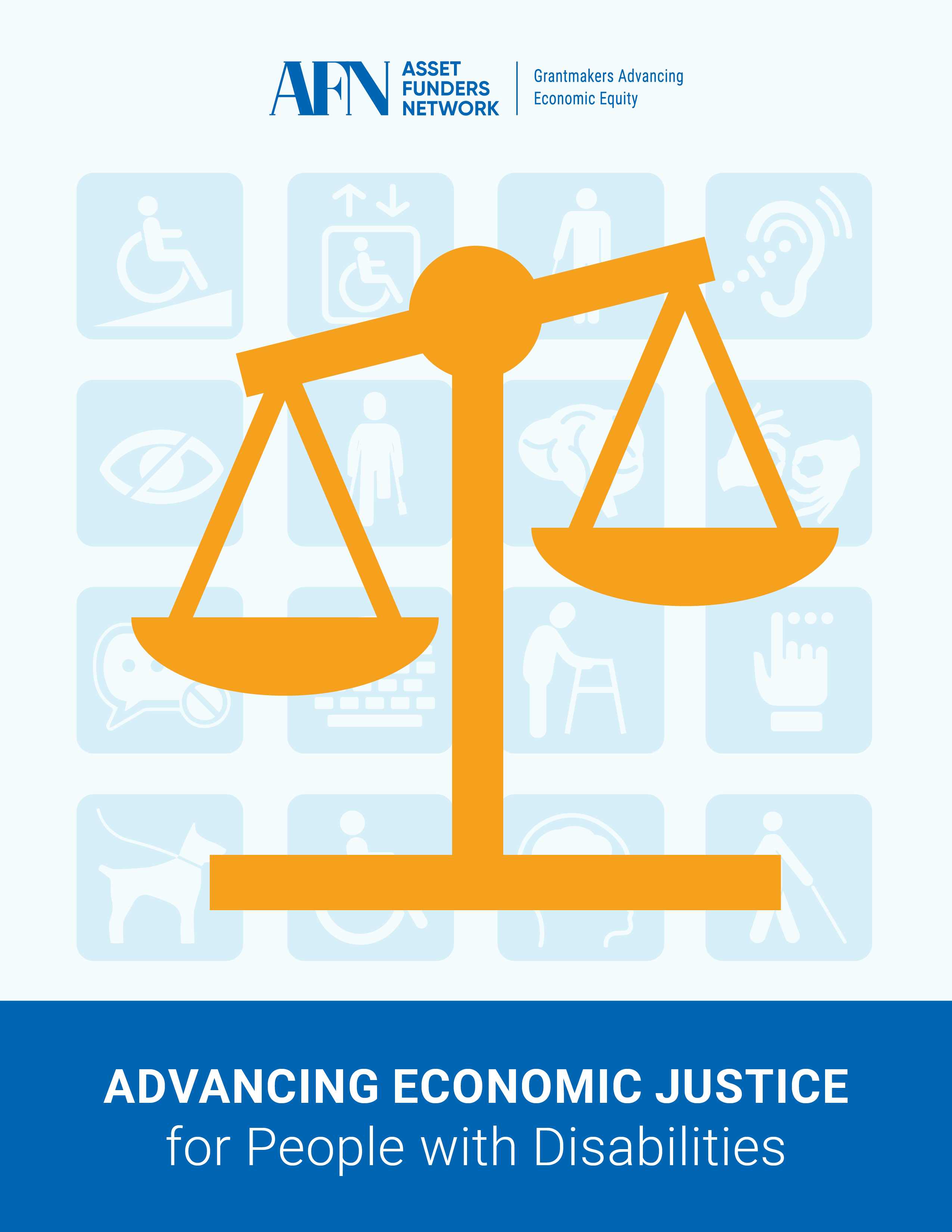
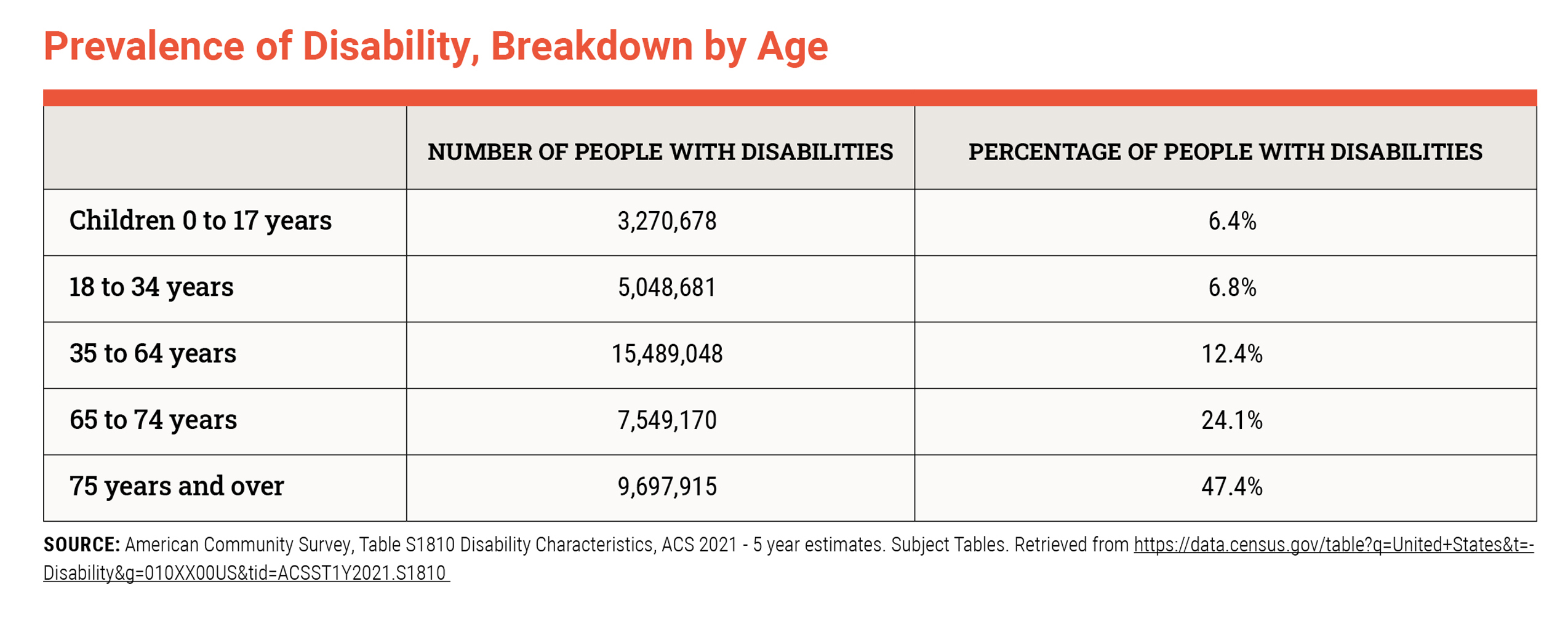
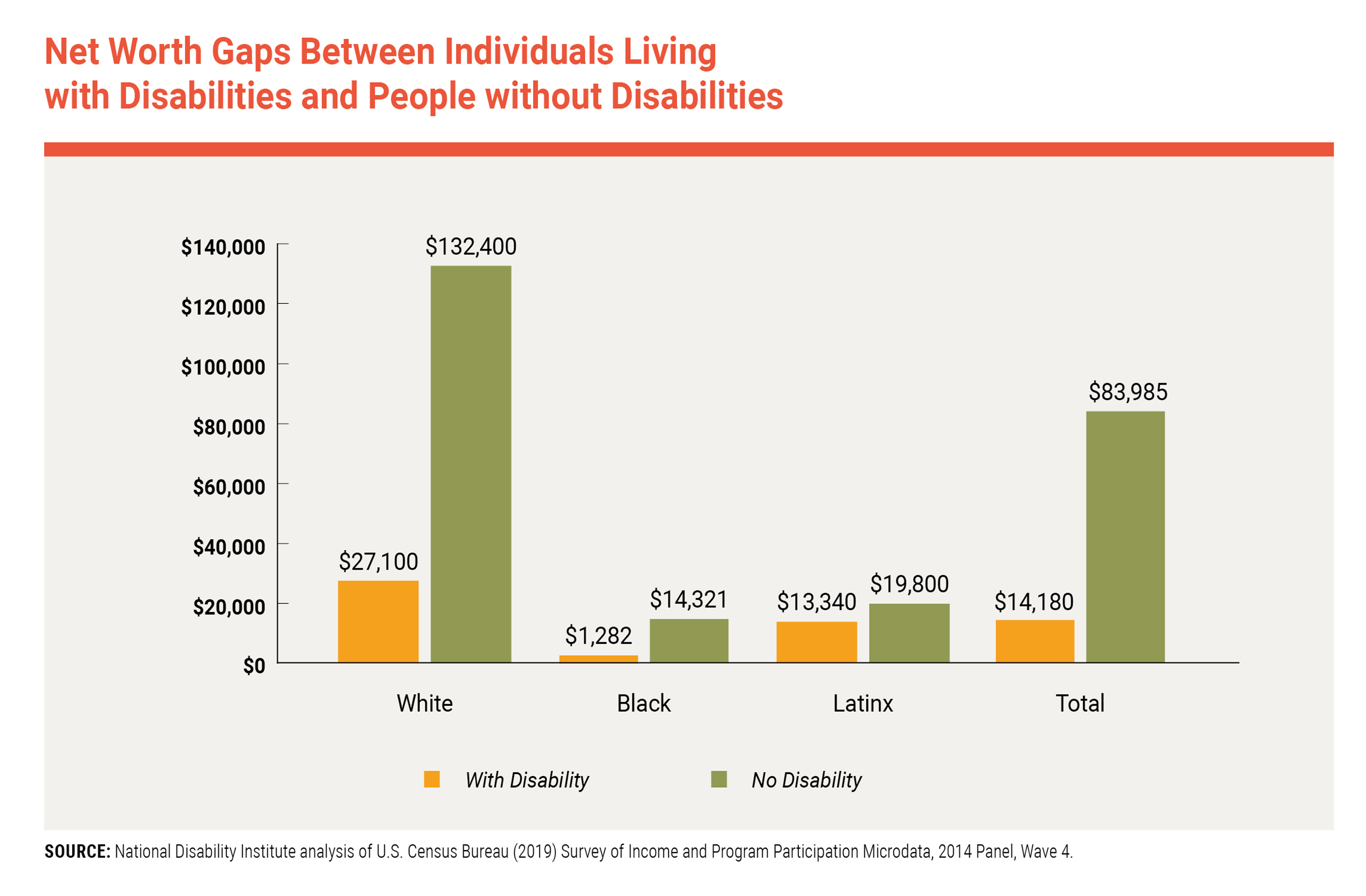
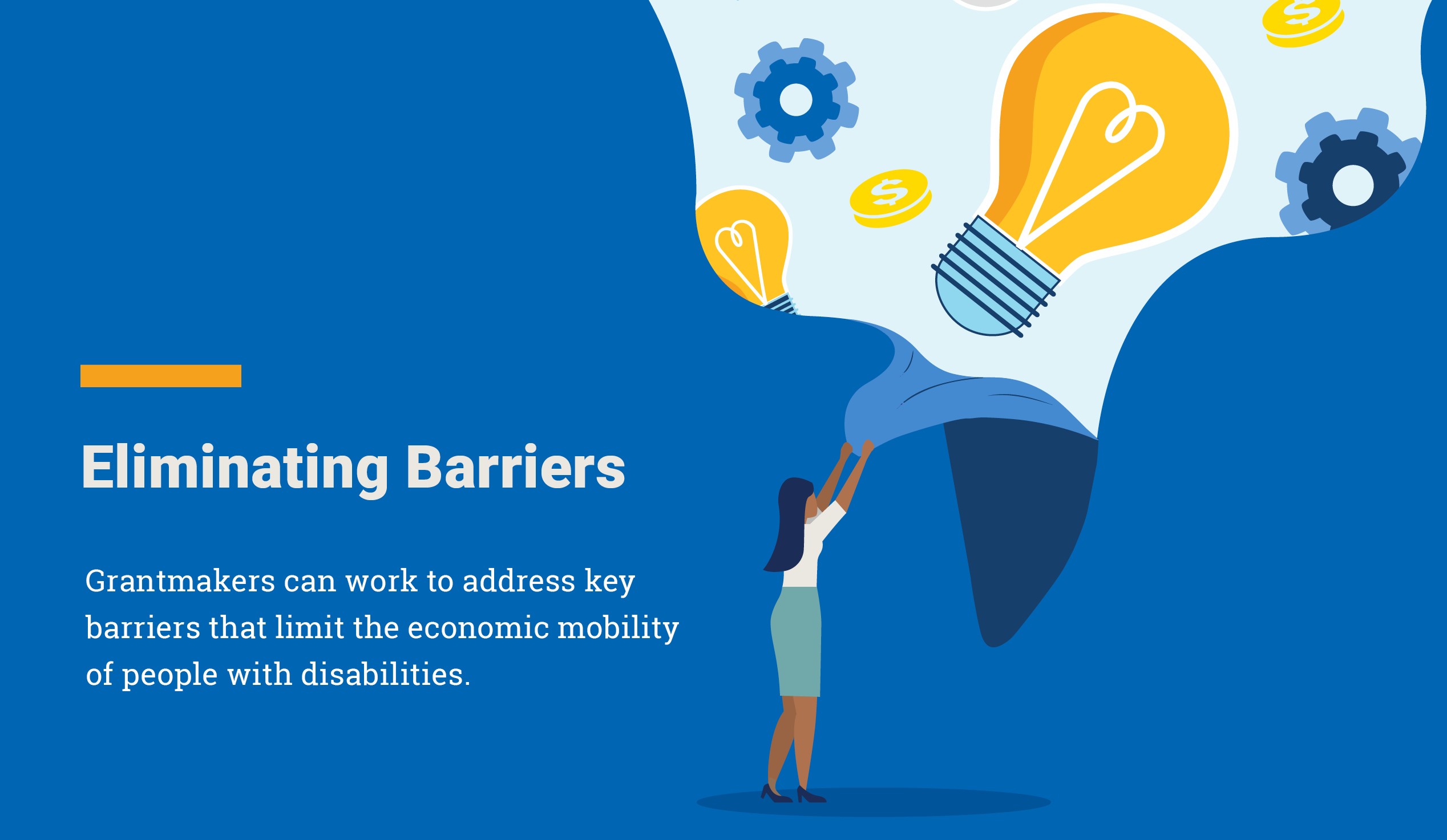
Entrepreneurs with disabilities experience barriers to accessing the financial tools they need to build their businesses and achieve financial mobility.
Without adequate insurance and income and asset-preservation supports, workers who
incur a disability often free fall into financial distress and asset loss.
Key disability benefits limit income, restrict assets, and create unjust debts in the form of overpayments, exacerbating financial precarity.
People with disabilities have acute needs for affordable and accessible housing.
Programs designed to increase the economic security of individuals with low to moderate incomes underserve people with disabilities.
Changing Policy
Grantmakers can also support efforts to change policies that create or reinforce barriers to wealth building, by providing focused support for narrative change and funding for research, advocacy, and testing of new strategies. Philanthropy can help with a range of efforts.
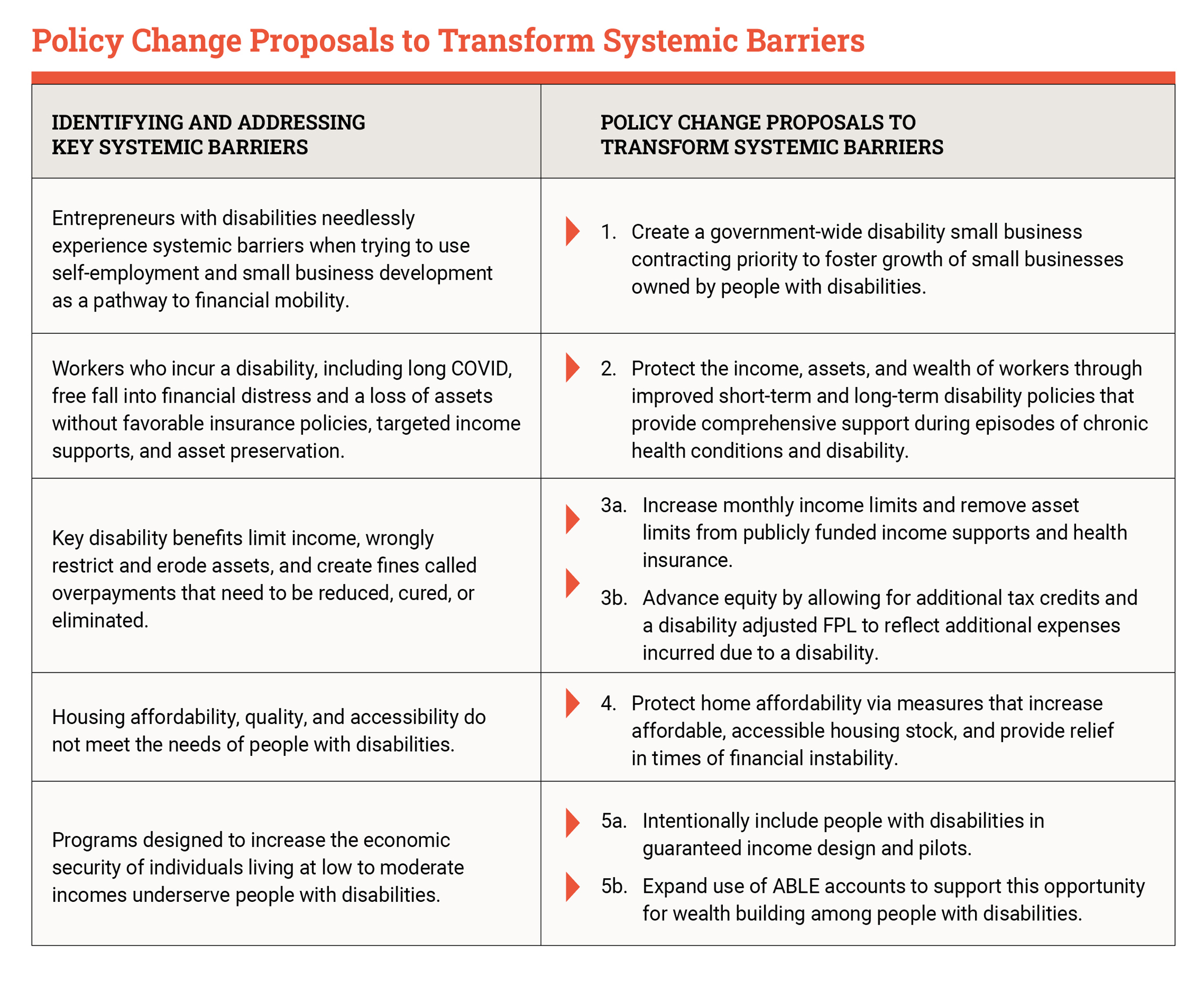
Including Disability in Economic Justice Grantmaking, Policies, and Operations
People with disabilities need access to the same opportunities and supports as those without disabilities. Taking a disability economic justice approach supports equal access and full participation by people with disabilities in grantmaking and internal operations.
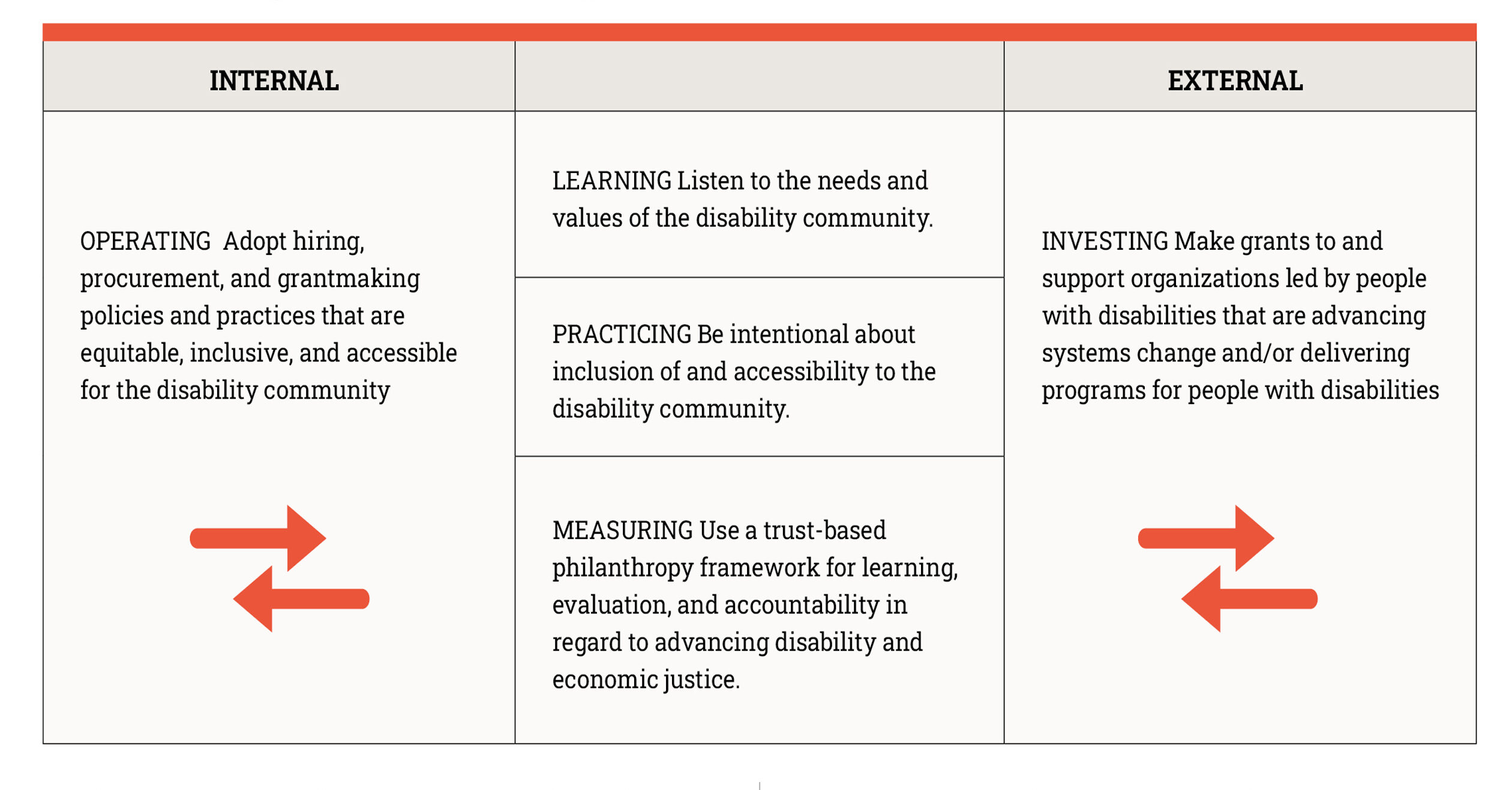
 Grantmakers can accelerate the achievement of financial stability and wealth accumulation for people with disabilities by adding a disability economic justice lens to the ways they LEARN, PRACTICE, INVEST, OPERATE, and MEASURE.
Grantmakers can accelerate the achievement of financial stability and wealth accumulation for people with disabilities by adding a disability economic justice lens to the ways they LEARN, PRACTICE, INVEST, OPERATE, and MEASURE.